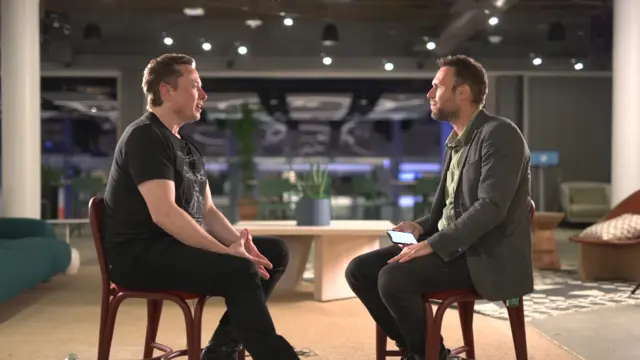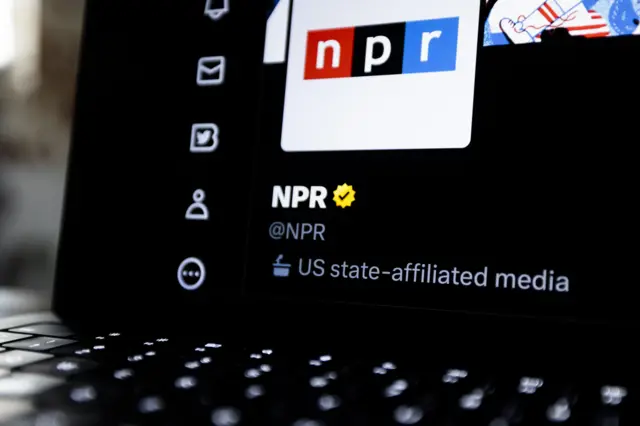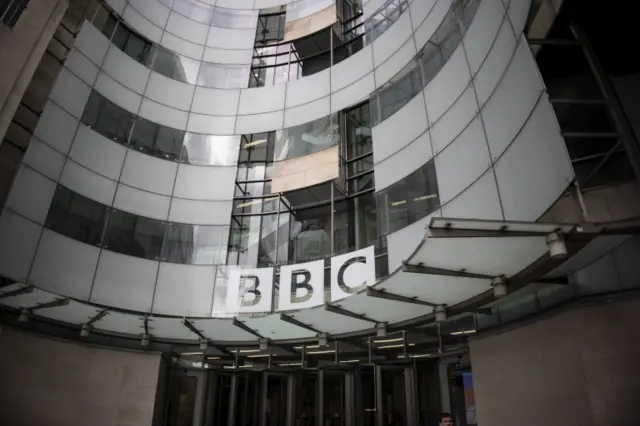Key things we learned from the interviewpublished at 15:20 BST 12 April 2023

We're closing our live coverage of Elon Musk's interview with the BBC shortly.
It was a wide-ranging and lengthy conversation, covering issues including hate speech and disinformation on the platform, whether Musk would be open to selling Twitter and who he voted for in 2020.
If you'd like a summary of some of the most important things we learned during it, they've been compiled for you here.
And James Clayton’s interview with Musk can be listened to in full on BBC Sounds in Americast's new episode - ‘Elon Musk Speaks to the BBC'.
Thanks for joining us. This page was brought to you by Adam Durbin, Patrick Jackson, Paul Gribben, Laura Gozzi, Andre Rhoden-Paul, Alys Davies, Sam Hancock, Ben Bevington, Frances Mao and Tiffany Wertheimer, with contributions from James Clayton, Mike Wendling, Zoe Kleinman and Marianna Spring.







